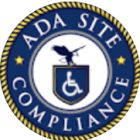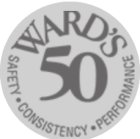
Starting your own business is a great achievement that everyone dreams of, however, it also comes with a big responsibility as it’s entirely up to you to build your own path to success and stand above the competition. Let’s dive into the main factors you must consider when planning your insurance agency.
The first step to starting this entrepreneurial journey is to make a roadmap that serves as a compass to guide your creation process. When building this itinerary, you should focus on answering: What you want to achieve and how you plan to do it. Let’s review what you’ll need to address these questions.
Having a planning schedule is indispensable for a producer. To start shaping it, write down your short- and long-term objectives, trying to be as specific as possible about your goals and the deadlines you have planned for each of them. Then, other important data that must be included is what resources you currently have, what your target audience is, how you hope to attract this audience so that they become leads, and who will be your main suppliers. It can also be useful to outline what kinds of risks or disadvantages you might face in the process, and who will be your competitors, to identify later how you can differentiate from them. Take into account that your roadmap is not something you’ll keep for you, as it will be part of your portfolio when you start working with insurance companies when making private arrangements in which you need to explain the type of agency you want to have. Likewise, this will provide support when requesting financing for your business.
Once you have defined the service you want to provide and identified your target audience in your business plan, you’ll be ready to process your insurance agent license. Let’s check the requirements you must meet to get your permit without any hassles.
Becoming a licensed independent producer involves a process that has to be completed within weeks or months, depending on your state’s regulations. To begin, you can familiarize yourself with your state’s licensing process by consulting resources like the National Insurance Producer Registry or your state’s branch of the Independent Insurance Agents and Brokers of America. What comes next is determining what type of insurance you want to sell, whether it be life, accident, health, property insurance, or any other. You can choose to specialize in one area or get licenses for multiple lines. After you’ve chosen your specialization, the following step is to enroll in a pre-licensing class specific to the type of insurance you’ll be selling, and then take the licensing exam at a third-party testing center. And finally, upon receiving the results, you can apply for your license by submitting the application to your state’s governing body. For your application, you’ll have to provide personal information, such as your Social Security number, date of birth, residency details, and payment of applicable fees, and once approved, you’ll be authorized to sell insurance products.
Regarding the legal structure you choose for your business, it’s important to consider how it will impact your profits and tax settlement. To make the best choice here, research and seek legal advice to ensure that you select the option that best suits your interests.
It’s vital to have a clear understanding of the different legal structures, as each of them has its particularities, and knowing them will allow you to make an informed decision depending on the expectations you have for your agency. Let’s see what each structure has to offer.
By carefully evaluating the benefits and drawbacks of each option and seeking guidance from legal and financial professionals, you’ll be able to identify the optimal structure that aligns with your agency’s objectives.
In this part, you’ll give an identity to your insurance agency. Pick a unique name that is available in the trade name registry and as a web domain and then register it in each state where you want to work. Once you do this, you’ll be just a few steps away from completing the legal process to have your insurance agency.
Remember that your agency’s name will be your brand, so make sure that you feel comfortable with it and that it represents you. After you’ve successfully registered it, it’s time to get a tax ID number, as the IRS requires corporations and partnerships to have a federal employer identification number (FEIN). This number is also necessary for opening a business bank account. Still, if you opt to be a sole proprietor or LLC member you’ll only have to use your Social Security number. The next step will be to obtain a license to operate an agency, a sales tax permit, and any other required documents specific to your state or city. A tip to verify that you’re meeting all the compliance regulations is to use the SBA’s Business Licenses and Permits tool to determine which permits or licenses you must have. Taking care of these things will help ensure a smooth beginning for your agency.
As an independent agent, you know better than anyone the importance of having a layer of protection that fully supports you and covers what matters to you, in this case, your agency. Also, depending on your business size and daily activities, you may need a particular type of insurance. Let’s look at some examples.
Each kind of coverage addresses specific risks, for example, Errors and omissions insurance (E&O) shields you against lawsuits related to claims of mistakes or omissions. Note that some states will require you to have E&O coverage for business registration. Another insurance that company owners frequently purchase is General liability, as it provides financial support in case of claims related to property damage and bodily injuries resulting from your products, services, or operations. Additionally, if you want to have a physical office for your business, you’ll need to get commercial property insurance, this policy protects you by helping you pay expenses associated with the loss, theft, or damage of items that are part of your agency, such as furniture, supplies, and office equipment. Also, if you decide to take your company to the digital world, which is a smart choice, you could consider buying Cyber liability insurance that helps businesses to cover costs like legal fees, customer notification, and others, that occur as a result of hacking attacks, data breach, and more cybercrimes. Don’t forget that by insuring your agency you’re protecting your investment.
You’re now officially a certified member of the insurance industry. Your next goal should be to become an expert agent, so you may find it beneficial to gain knowledge by having a partnership with a company. This can provide you with valuable insights and skills on your journey as an independent producer.
Establishing direct relationships with insurance companies can be a challenge, which is why some producers choose to join organizations that can bring them closer to providers, such as Brokers of America, or the Independent Insurance Agents, among others. However, your chances of connecting with a company in a sector that is constantly growing and reinventing itself are considerably high. You build your path and it will depend on your skills and preparation to find the right partner in your career. Whether you want to be a freelance or employed insurance broker, it’s important to evaluate the different companies, their history, financial stability, what commissions they give, and what reviews they have. Also, make sure the corporation you want to work with sells products and services related to the type of insurance that you specialize in. At PSIC, you can become an independent agent and unlock substantial growth opportunities. With our extensive industry experience, we offer valuable knowledge in the insurance sector that will contribute to the success of your business.
Having a customer base is essential for agents, as it plays a pivotal role in forging alliances and cultivating a community around your work. Making this a key priority is vital for success. It serves as a reliable foundation to attract new opportunities and enables you to effectively extend your services to a broader audience.
Working to build a solid client base offers numerous benefits and is a worthwhile endeavor. The secret here is to think big, don’t settle for the few sales you manage to attract with common sales methods. If your goal is to gradually and consistently expand your customer base, you’re going to need to resort to new options that are attractive and keep users interested in your work. One way to achieve great visibility is to use technology to publicize your agency. Create a professional website, open business accounts on social media, and start establishing a community with the resources that you already have, use clients’ testimonials, post content about your services, and share interesting information related to the insurance industry. This proactive approach is crucial for ensuring the long-term sustainability of your company. Using social media platforms can greatly benefit producers by helping them expand their reach, build their brand, connect with their audience, generate leads, and stay informed about market trends.
In general, your path to starting an Independent Insurance Agency will include two variants. First, the legal requirements regarding the type of insurance policies you’ll sell and where you’ll provide your services. And then, the aspects related to the structure of your business that you must define.
You know that permits and licenses may vary depending on the state in which you decide to work, so the main recommendation is to research and seek advice from the entities that are in charge of these processes, such as the secretary of state and your state’s Insurance Commissioner’s offices. This way you can ensure to comply with the necessary regulations to properly register your business. Besides, it’s up to you to find the legal structure for your agency that aligns with your interests and risk tolerance and to define what’s the type of contract or alliance that best suits your lifestyle. Whether you want to work for an insurance company or not be exclusively affiliated with one, research the conditions of each option. Keep in mind that as an independent producer, you have the advantage of being able to work with different providers, have greater income opportunities, and be the one who shapes your own company. Finally, use every resource possible to help your business grow, including social media and other marketing tools, and strive to maintain and expand your customer base. By following these steps you’ll surely stand out in the highly competitive insurance industry.
We’re here to help. Ask about PSIC plans, implementation or anything else.

With more than 40 years of trajectory, we have the expertise to accompany you in every stage of your life.
5515 E. La Palma Ave. Ste. 150, Anaheim, CA 92807



Copyright © McGraw Insurance Services, L.P., Delaware L.P., 5515 E. La Palma Ave. Ste. 150, Anaheim, CA 92807, License 0K06900 / National Producer No. 17486061 The insurance policy, not the contents of this website, forms the contract between the insured and the insurance company. The policy may contain limits, exclusions and limitations that are not detailed on this website. Coverage may differ by state.
Privacy Notice at Collection for CA employees
Last updated: June 27, 2023
We take the privacy of our employees and applicants very seriously. Please read this notice carefully as it contains important information on the personal information that we collect, why we collect it, how long we keep it, and that it is not sold to third parties.
Other terms used but not defined will have the meaning set forth in the CCPA, as amended by the CPRA, Cal. Civ. Code §§ 1798.100—1798.199.100, and accompanying regulations set forth under Cal. Code Regs. tit. 11, § 7000 et seq.
Categories of Personal Information Collected
Purposes for Collecting and Using Your Personal Information
Managing Human Resource Functions:
Conducting business operations:
Monitoring:
Compliance with:
Investigating:
We will not retain your personal information for longer than necessary for the purposes set out in this notice. Different retention periods apply for different types of personal information.
When it is no longer necessary to retain your personal information, we will delete or anonymize it.